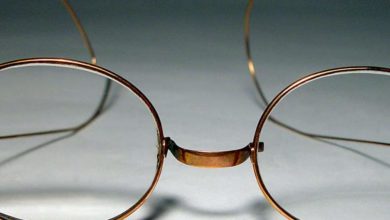The editorial team at ProspectiveDoctor.com interviewed more than a dozen medical schools to gain insight on the effects of the pandemic and the increase in medical school applicants caused by the Fauci Effect.
The biggest change has been ensuring we are being even more considerate of the myriad challenges applicants have faced this year.
Dr. Mark Henderson, UC Davis School of Medicine Admissions Dean
When news broke last year that applications to medical schools had increased as much as 50%, it was assumed that an implosion was inevitable. How could schools possibly handle reading all those extra applications and essays? Who would be in charge of the logistical nightmare of scheduling hundreds of Zoom interviews? When MCAT test dates were postponed and students were mired in pandemic anxiety, would schools still place the same emphasis on scores?
Turns out, schools met the challenge head on and effortlessly adjusted to handle the increase.
To gain greater insight on the effects of the pandemic and the increase in medical school applicants, the editorial team at ProspectiveDoctor.com interviewed more than a dozen medical schools. The goal was to explore how schools reacted to the increase in applicants, and what future applicants and prospective doctors can expect.
The team invited schools to candidly weigh in on how they are adapting to the challenges due to COVID-19 restrictions, how their application and interview process has changed, and how they are selecting the brightest minds and strongest potential amid the surge of applicants.
The Fauci Effect Continues to Drive Massive Surge in Applicants
Serving as an unforeseen benefit of the coronavirus, the global pandemic is contributing to a heightened interest in medicine and clinical-based occupations. Those in the medical field have likened the response, known as the “Fauci Effect” to what happened following 9/11, with a new wave of recruits having a strong desire to be on the front lines.
Many prospective applicants are speaking out on their inspiration to attend medical school, citing reasons such as:
- Wanting to correct the societal disparities in healthcare
- Desiring to meet the increasing demand for staff
- Finding purpose in helping others
- Being fascinated by the level of clinical research during the pandemic
According to the (AAMC) Association of American Medical Colleges, medical schools nationwide saw an average increase in applicants of 18% over last year. For context, in the past 10 years, the year-over-year increase has averaged less than 3%.
In many areas, the number is even higher. For example, Stanford University School of Medicine saw a 50% increase in the number of applications. That came out to around 11,000 applications – for just 90 seats.
At UC Davis School of Medicine, the applicant pool increased by 40% during this cycle.
“Reasons for the increase are multifactorial including the pandemic, which has highlighted the importance of medicine in public health, and the economic downturn, which tends to spur greater interest in professional schools,” said Dr. Mark Henderson, UC Davis School of Medicine Admissions Dean.
“Because UC Davis draws large numbers of applicants who aspire to care for the underserved, it’s a fair assumption that the pandemic – which has been more devastating to communities of color – is top of mind,” noted Dr. Henderson.
While unanticipated amid a global pandemic, admission directors have been thrilled by the response, especially in a year when the AAMC reported that they expect a shortage of 54,100 to 139,000 physicians by 2033.
Still, such an increase in applicants naturally puts a strain on a process that is already highly competitive – even in a non-pandemic year. How are schools navigating the admissions process, and what can future applicants expect?
Despite Increase in Applicants & More Competitive Landscape, Students Should Not Delay Applying
As many would expect, the inevitable changes to the admission process are being met with some fear and apprehension. However, admission counselors are doing their best to embrace students’ concerns and remain as positive and transparent as possible. They are actively discouraging prospective students from delaying their applications.
As Founder of MedSchoolCoach, Sahil Mehta MD noted, “With the increased number of med school applicants, it’s more competitive than ever to get into a student’s desired school. As a result, MedSchoolCoach has seen a proportional increase in students seeking advising and tutoring services to improve their MCAT scores, write a standout personal essay, and prepare for interviews.”
Even though the changes feel abrupt as schools struggle to keep prospective students and faculty safe, the consensus among most applicants is a feeling of encouragement.
As a response, many of the top medical schools in the country are engaging with applicants differently while attempting to soften the usual rigid requirements.
Dr. Henderson noted that, “For several years, UC Davis School of Medicine has been engaged with the American Association of Medical Colleges (AAMC) and medical schools across the nation to spearhead the development of best practices for incorporating distance traveled or hardship into our holistic admissions processes. This has been particularly important during the coronavirus pandemic, which has placed additional burdens upon many applicants, particularly those from disadvantaged backgrounds.”
Virtual Interviews are Here to Stay – Though Some Students Miss the In-Person Experience
A few of the schools’ admissions staff spoke candidly about the difficulties in screening and interviewing applicants this past year. They spoke of how they had to reimagine the traditional screening tools they typically use.
Though the responses varied, the consensus reflected a more holistic method to evaluating admission criteria, and most of the schools successfully moved to conducting virtual interviews as opposed to the traditional in-person.
When asked if the virtual interviews helped or hindered the application process for the admissions team and the applicants, Michelle Schmude, EdD, MBA, the Associate Dean for Admissions, Enrollment Management and Financial Aid at Geisinger Commonwealth School of Medicine responded that she believed, “It helped the applicant, as it provided greater access to those who may be disadvantaged in the process because of financial means. The interviews were met with enthusiasm, and the experiences were positive for both the medical schools and applicants.”
David A. Rose, MD, Associate Dean for Student Affairs and Admissions at Howard University College of Medicine, which experienced a 28% increase in applicants, recognized that virtual interviews, “Helped students that were geographically far from DC in avoiding the costs of travel. However, many applicants in our post interview survey missed being in-person and viewing the campus.”
This brings up an important point about on-campus interviews. While many schools are planning to continue offering virtual interviews, the reality is that not only will students miss the in-person experience, but the school will also miss out on the opportunity to sell the campus to students.
Schools With Programs to Alleviate Financial Burden Became More Attractive to Applicants
Many schools, like Geisinger Medical Center, have long had programs in place to help alleviate the financial burden of medical school. While the school saw an increase of about 14% in applications to their MD program, they also saw a surge in interest in the Abigail Geisinger Scholars Program.
Schmude explained, “As you may know, according to the AAMC, the average medical school debt is $200,000 and that does not include any undergraduate debt a student may have. Service commitment programs like the Abigail Geisinger Scholars Program demonstrate our commitment to making medical school affordable for all students.”
The mission-driven program provides tuition, fees, and a $2,000 monthly stipend for up to four years for students interested in family medicine, internal medicine, medicine/pediatric and psychiatry. Students then come back post residency to practice at Geisinger for the number of years they received funding.
“Of course, we anticipate those returning to our system will become a permanent fixture within Geisinger and stay well beyond their service commitment,” concluded Schmude.
Students Can Expect Compassion & Support – But Being a Competitive Applicant Is Still a Must
Future medical school applicants can expect the option of virtual interviews to continue at many schools even after the lockdown restrictions have been lifted. They can also expect to still have to provide strong prerequisites needed to help drive admission chances. And MCAT scores will remain a key factor in a school’s holistic admissions process, which weighs an applicant’s personal attributes, work experiences, and education metrics.
Renee Marinelli, MD, Director of Advising at MedSchoolCoach confirmed that, “Strong MCAT scores, compelling personal essays, and cohesive applications with a connected theme are a must. Becoming a more competitive applicant increases a student’s chance of being accepted into medical school.”
Dr. Henderson concluded, “The biggest change has been ensuring we are being even more considerate of the myriad challenges applicants have faced this year.”
In short: admissions teams have never rooted harder for prospective medical students.
In an unprecedented time that has resulted in an unprecedented – albeit, welcome – surge in applicants, admission directors are more committed than ever to fill their seats with the best possible students. As a result, they are finding compassionate ways to engage and support future applicants through the rigorous process of applying to medical school.



